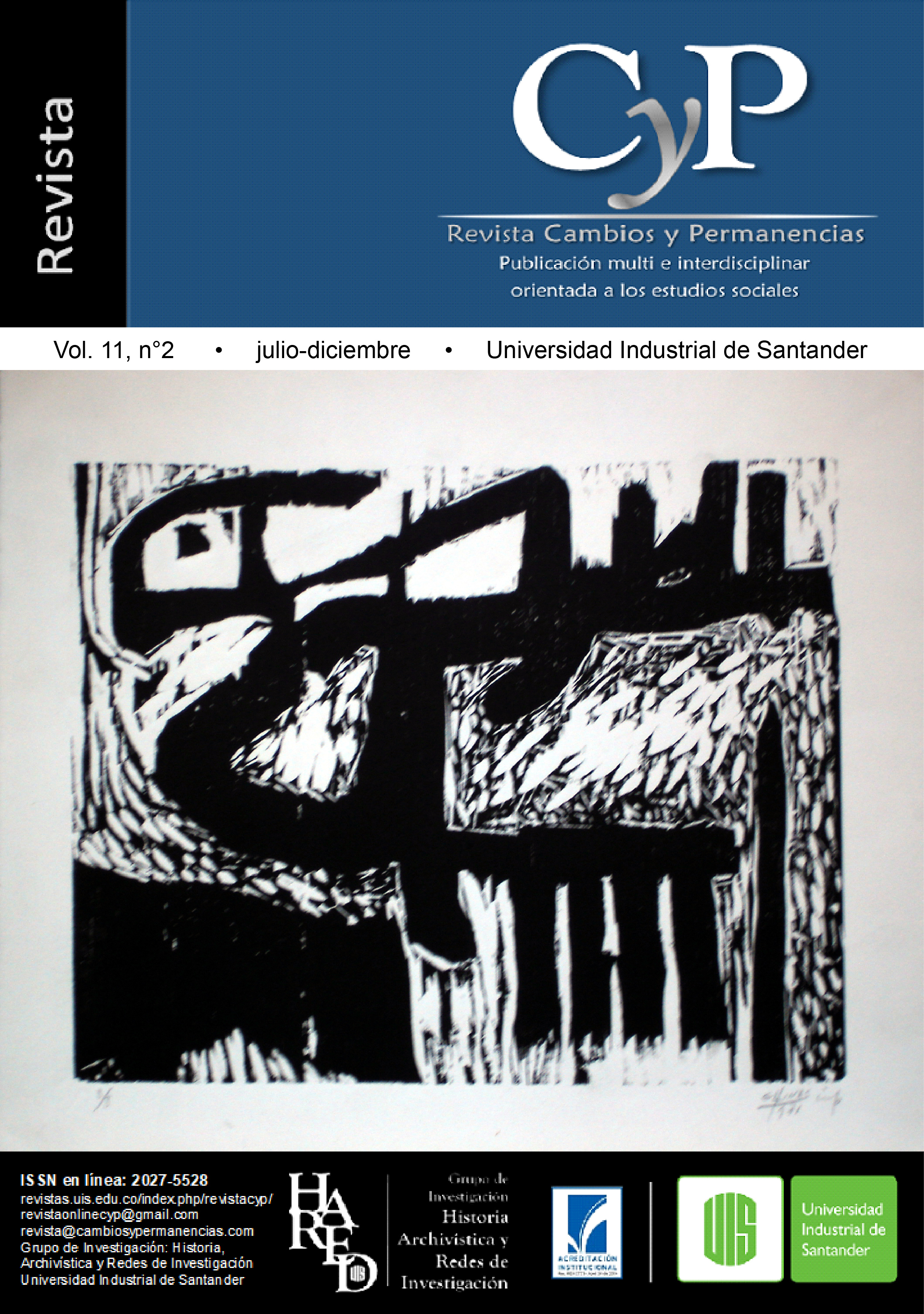Emergence and consolidation of new reforms to the public force from the perspective of the Colombian written press (2002-2010)
Published 2020-12-15
Keywords
- change of reforms,
- State,
- democratic security,
- hegemonic political project,
- Colombia
How to Cite
Abstract
In this writing, a study is carried out on the change in the condition of the treatment - emergency and consolidation - of the Democratic Security Policy in Colombia in the post-neoliberal period, based on the analysis of the institutional and political dimensions that they supported and were the backbone to maintain it as a long-term government plan. The proposed theoretical approach takes up categories from the sociology of prevention, security and crime problems and the theory of the state of shock to achieve a reading focused on historical processes and the construction of local and national powers. Through this analysis, the aim is to problematize two issues: the foundations of the change in the conception of security as a policy and control argument, and the mode of operation of the public force that broke its role as guarantor of security by allowing itself to permeate widespread corruption , cartelization and denial regarding the historical memory of the armed conflict and state terrorism, as well as a multiplicity of silenced stories that demanded during that period the visibility of repression in order to achieve truth and full justice, while the Democratic security policy (hereinafter PSD) was articulated and presented as a model for all of Latin America and as a hegemonic political project. For the empirical approach, the period 2002-2010 was selected, differentiating the emergency stage (2002-2006) from the consolidation stage (2007-2010) as a new instituted order that offered the idea of an exemplary model for maintaining public order and social coexistence. Regarding the methodology, a reflective-research is carried out with the qualitative method anchored in the content analysis of two written media. In this way, the historical processes that go from the period 2002 to 2010 and the debates between the different public actors that discussed and intervened the issues related to (in) security and crime are understood.
Downloads
References
Barbero, J. M. (2007). La ciudad: entre medios y miedos. En Ciudadanías del miedo (pp. 29-35). Caracas, Venezuela: Nueva Sociedad.
Barth, F. (1969). Los grupos étnicos y sus fronteras. La organización social de las diferencias culturales. México: Fondo de Cultura Económica.
Beckett, K. (1997). Making Crime Pay: Law and Order in Contemporary American Politics. Nueva York, EE. UU.: Oxford University Press.
Benza, G., y Kessler, G. (2020). Uneven Trajectories: Latin American Societies in the Twenty-First Century (Elements in Politics and Society in Latin America). Cambridge, EE. UU.: Cambridge University Press.
Bonilla, J. I. (2004). Medios de comunicación, opinión y conflicto armado. El consenso por otras vías. Bogotá, Colombia: Lepri y Frescol.
Bonilla, J. I., y Tamayo, C. (1998-2001). Medios, Violencia y Terrorismo en América Latina. Revisión y análisis crítico.
Bourdieu, P. (1988b). Cosas Dichas. Barcelona, España: Gedisa.
Dammert, L., Salazar, F., Montt, C., y González, P. (2010). Crimen e inseguridad. Indicadores para las Américas. Santiago, Chile: Flacso-Bid.
Garay, J. L., Isaac de León, B., y Guerrero, B. (2008). La captura y reconfiguración cooptada del Estado en Colombia. Colombia: (S. E.).
García Villegas, M. (2004). On Bourdieu´s legal thought. Revista Droit et société, 55.
García Villegas, M. (2016). La eficacia simbólica del derecho. Sociología política del campo jurídico en América Latina. Bogotá, Colombia: Instituto de estudios políticos y relaciones internacionales (IEPRI), Universidad Nacional de Colombia.
Garland, D. (2001). The Culture of Control: Crime and Social Order in Contemporary Society. Chicago, EE. UU.: University of Chicago Press.
Garland, D. (2005). Castigo y sociedad moderna. México: Siglo XXI Editores.
Habermas, J. (1999). Teoría de la Acción Comunicativa. España: Taurus.
Kalyvas, S., y Arjona, A. (2005). Paramilitarismo: una perspectiva teórica. En A. Rangel, (ed.), El poder paramilitar (pp. 25-40). Bogotá, Colombia: Planeta.
Kessler, G. (2009). El sentimiento de inseguridad. Sociología del temor al delito. Buenos Aires, Argentina: (S. E.).
Kessler, G., y Oyhandy, Á. (2014). Presentación: Dossier sobre criminalidad y políticas de seguridad. Cuestiones de Sociología, (10).
Lorenc Valcarce, F. (2007). La mercantilisation de la sécurité: rôles de l'Etat et de l'initiative privée dans la constitution des marchés de la surveillance en Argentine. Francia: (S. E.).
Muñoz Gallego, M. (2019). Crímenes y parapolítica en Colombia en el siglo XXI: Análisis de tres casos a partir de los medios escritos de comunicación (Tesis doctoral). Universidad Nacional de La Plata, Argentina.
Restrepo, S., y Vargas, J. (2006). El conflicto en Colombia: ¿quién hizo qué a quién? Un enfoque cuantitativo (1988-2003). En IEPRI (Coord.), Nuestra guerra sin nombre: transformaciones del conflicto en Colombia (pp. 505-542). Bogotá, Colombia: Norma.
Romero, M. (2007). Parapolítica. La ruta de la expansión paramilitar y los acuerdos políticos. Bogotá, Colombia: Corporación Nuevo Arco Iris. CEREC-ASDI.
Sánchez, G. G. (2006). Guerras, memoria e historia. Bogotá, Colombia: Instituto de Estudios Políticos y Relaciones Internacionales (IEPRI), Universidad Nacional de Colombia, La Carreta Editores, PNUD, CAF.
Schultze-Kraft, M. (2005). Pacificación y poder civil en Centroamérica. Bogotá, Colombia: Norma.
Thoumi, F. (2009). Las drogas ilegales, el fracaso de la política antinarcóticos y la necesidad de reformas institucionales en Colombia. En J. G. Tokatlián, La guerra contra las drogas en el mundo andino. Hacia un cambio de paradigma. Buenos Aires, Argentina: Libros del zorzal.
Tilly, Ch. (2000). La desigualdad persistente. Buenos Aires, Argentina: Manantial.
Ugarte Godoy, J. J. (1995). El sistema jurídico de Kelsen. Síntesis y Crítica. Revista Chilena de derecho, 22(1), 109-118.

